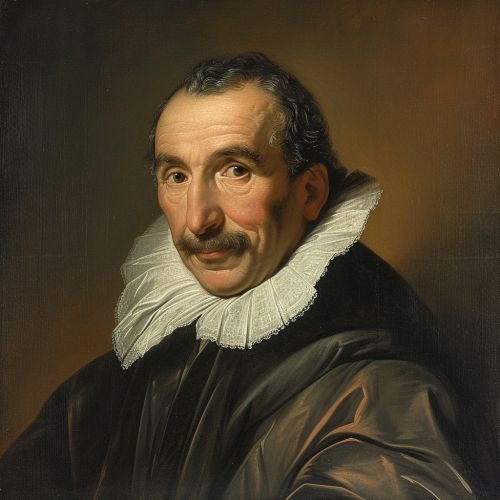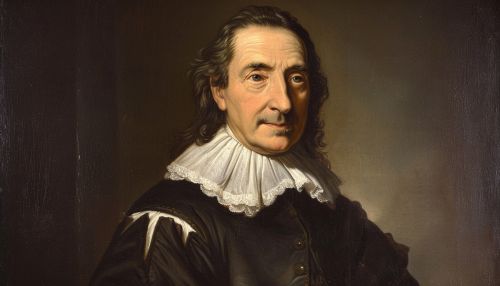Pierre Corneille
Early Life
Pierre Corneille was born on June 6, 1606, in Rouen, Normandy, France. He was the son of Marthe Le Pesant and Pierre Corneille, a lawyer. He was educated at the Jesuit school in his hometown, where he showed an early interest in Latin literature, particularly in the works of the Roman dramatist Seneca.
Career
Corneille began his career as a lawyer, but he soon turned to writing. His first play, "Mélite," was produced in 1629. It was a comedy that followed the conventions of the time, but it was his second play, "Clitandre" (1631), that marked a departure from the traditional themes of comedy and tragedy. This play introduced a new form of drama, known as the "heroic drama," which would become Corneille's signature style.
In 1637, Corneille wrote "Le Cid," a play based on the legend of the 11th-century Spanish hero Rodrigo Díaz de Vivar. The play was a critical and popular success, but it also sparked a controversy known as the "Querelle du Cid" (Quarrel of the Cid). Critics, led by the influential scholar Jean Chapelain, argued that the play violated the classical unities of time, place, and action. Despite this controversy, "Le Cid" is considered a masterpiece of French literature.
Corneille continued to write plays throughout his career, including "Horace" (1640), "Cinna" (1641), and "Polyeucte" (1643). These plays, along with "Le Cid," are often referred to as Corneille's "great tragedies." They are characterized by their focus on noble characters who face difficult moral dilemmas. Corneille's plays are also known for their complex plots and their use of the alexandrine, a 12-syllable verse form.
Corneille's later plays, such as "Surena" (1674), were less successful than his earlier works. However, he continued to write until his death in 1684. His final play, "Suréna," was published posthumously.
Legacy
Corneille's influence on French literature is significant. He is often credited with establishing the conventions of French classical tragedy. His plays are still performed today, and they continue to be studied for their literary and historical significance.
Corneille's work also had a profound influence on other playwrights. His contemporary, Jean Racine, is often compared to Corneille. While Racine's tragedies are more psychological and introspective, Corneille's are more action-oriented and focused on public duty. The two playwrights represent different approaches to the same tradition of French classical tragedy.
In the 19th century, Corneille's plays were rediscovered by the Romantics, who admired their passion and intensity. The French poet Victor Hugo was a particular admirer of Corneille, and he wrote a preface to a 1827 edition of Corneille's complete works.
See Also


